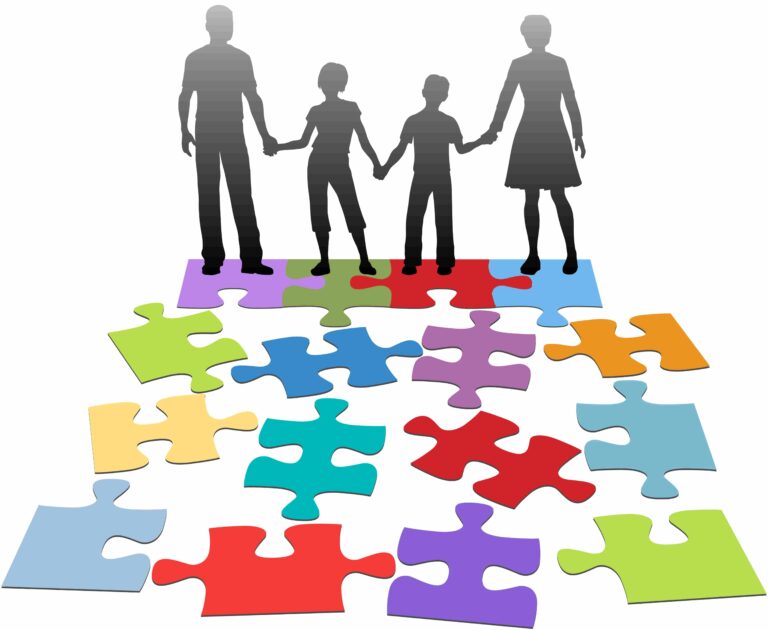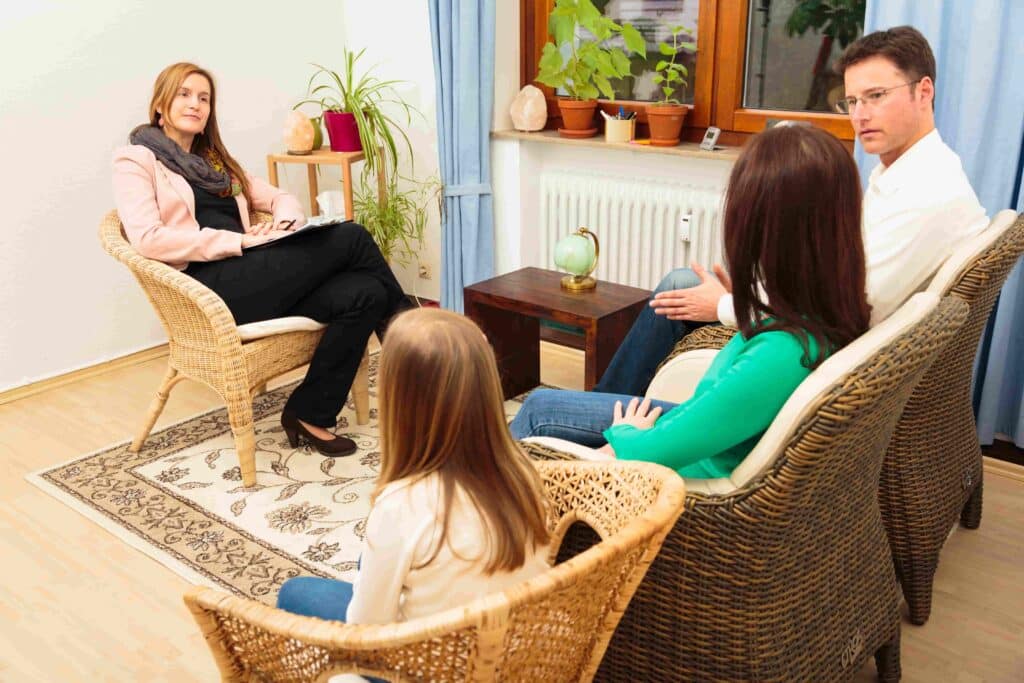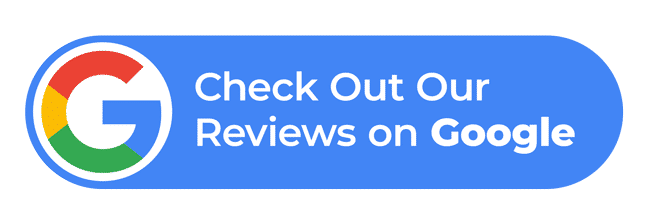Family Counselling Calgary
Family Counselling In Calgary
If you’ve never been to family counselling in Calgary, also known as family therapy, you might be wondering what it is all about. Well, the idea behind this method of treatment is to improve relationships within a family. For example, in some cases the relationship between a parent and a child may be causing significant problems — the goal of a counsellor would then be to break down these issues and figure out ways that the parent and child can grow closer and function better together.
Family counselling encompasses a wide range of theories and techniques that help promote healthier families. From addressing individual concerns, issues and strengths to strengthening the bonds of relationships, there are many facets to family counselling. For example, some family issues could include:
- Dealing with divorce or separation;
- Managing problematic behaviour;
- Parenting skills;
- Resolving conflict;
- Setting boundaries; and
- Other matters of relationship development and management.
Although this list is far from exhaustive, it offers an overview of some general issues that may come up during the course of working with family members in therapy.
Many family counselling approaches stem from family systems theory. Family systems theory helps us understand how the whole family interacts with one another. It contributes to our understanding of behavioural disorders, the development of children and adolescents, the communication patterns between married couples, and the effects of domestic violence. Family therapists can affect change by focusing on individual or couple issues within the context of the larger family system.
What Are The Ultimate Goals Of Family Therapy?
Family counselling in Calgary is used to develop and maintain healthy and functional family relationships. The goal is to identify and address problems in the family. These issues could be emotional, psychological, or behavioural. Family therapy approaches stem from myriad theories based on psychology, sociology, anthropology, religion, philosophy and other disciplines.
Ultimately, the goals of family therapy depend on the family’s wishes. Generally, family therapy is implemented to help the members of a family function in a happier and healthier manner. As a positive home environment benefits the family, as well as society at large.

Is There A Difference Between Marriage Counselling And Family Counselling?
Marriage counsellors and family counsellors are similar in many respects, but have different areas of focus. Because of this, the type of counselling you receive from either one may vary. Marriage counselling focuses on the needs of the couple involved; their relationship is the primary concern. However, family counselling can include any number of people in the family – parents, children, grandparents, co-parents, etc. Family counselling may only involve one parent and one child, or it may include an entire household.
How To Prepare Your Family For Counselling
You’ve decided that counselling for you and your family is beneficial and you think it would be a good idea to start family therapy sessions. Now what? It’s not always easy as a parent to lay all of your cards down on the table and share your deepest, darkest thoughts with your children.
Try some preparation before each family therapy session to make things flow better at home. If you know how to get started and open the lines of communication as a family, you can engage in constructive discussion with everyone on board. Below you will find some tips for preparing your family for counselling
- Talk to your children about why you are getting therapy;
- Treat them with respect and explain that the counselling is not a reflection on their actions;
- Let them know that family sessions can’t replace having one-on-one time with each of them;
- Talk with your therapist to get ideas on how you can discuss this issue with your children;
- Think about what you want to say in therapy. Write some notes and practice what you are going to say.
Preparing for family therapy sessions is a very important part of therapy. This can be especially true if you’re getting therapy with your children involved. The discussion topics you want to touch on, and how prepared you are will affect the healing process from family conflicts.

What Is The Best Type Of Therapy For Families?
Family therapy is just one of many tactics used by counsellors to help families in need. However, the following are the most commonly used counselling techniques used by therapists:
Structural Family Therapy
Structural family therapy is a theory developed by Salvador Minuchin. The main idea behind this technique is that every person in a family has two roles: The person/role they are born with and the “community” role they develop based on the needs of their respective family. As an example, a child may become parentified and start filling adult roles within the family. This type of therapy tries to reconstruct families by removing dysfunction and returning each person to their community role.
Strategic Therapy
Strategic family therapy gives equal importance to all members in a family, regardless of their age, gender or the degree to which any member dominates the other members.
Systemic Therapy
Systemic therapy helps individuals to identify and understand the basic values and assumptions that guide their current lifestyle patterns, including communication patterns and problem solving methods.
There are a range of other counselling techniques used for family therapy including:
- Narrative therapy;
- Transgenerational therapy;
- Communication therapy;
- Psychoeducation;
- Relationship counselling, and more.
Counselling theory has evolved a great deal over the last several decades, helping to improve and expand psychotherapy in many important ways. Along that journey, family therapists have developed many creative theories and tools, many of which are suitable for use in therapy with all types of families.
As there are so many different approaches, there is no such thing as “the best type of therapy for families”. What does exist, however, is a range of counselling techniques and a variety of different therapeutic approaches that can be quite beneficial to people from a range of families. Every family is unique, as are their needs. These individual differences often determine what type of counselling technique will be most helpful.
Family Counselling With Virtuous Circle
There are a lot of families that are experiencing significant discord and frustration. This is particularly common in families where there have been abuse issues, previous addictions and/or mental health problems, and marital stress. Family counselling in Calgary can be a great way to get those family members to work together in a way that will end the conflicts that they have been experiencing.
What makes family counselling so powerful is the ability to address all of the issues within a family from a central point. By working with a counsellor, it’s possible to solve some of the problems that have been standing in the way of successful cohabitation. To find out whether or not family counselling is right for you, feel free to contact Virtuous Circle Counselling today.
Book Your Appointment Online
We are currently accepting new clients however being a good fit is everything in a therapeutic alliance. When you’re ready, please contact us for a free 30-minute phone consultation to see if we match your needs and goals.

Our Alberta Locations
WestMount Corporate Campus
4838 Richard Rd SW Suite 300
Calgary, AB T3E 6L1
Phone: (587) 856-8369
Crowfoot West Business Centre
600 Crowfoot Crescent NW Suite 340
Calgary, AB T3G 0B4
Phone: (403) 797-0660
North Campus
160 Quarry Park Blvd SE Suite 300
Calgary, AB T2C 3G3
Phone: (587) 782-4277
Our Edmonton Locations
ELM Business Park
9426 51 Ave NW Suite 201
Edmonton, AB T6E 5A6
Phone: (587) 741-2364
Our British Columbia Locations
1631 Dickson Ave Suite 1100
Kelowna, BC V1Y 0B5
Phone: (778) 654-5396
Our Hours
Monday – Friday: 8am to 8pm
Sunday: 8am to 8pm
Saturday: 8am to 8pm
Our Hours
Monday – Friday: 8am to 8pm
Saturday: 8am to 8pm
Sunday: 8am to 8pm
Copyright 2023 © All rights Reserved. Virtuous Circle Counselling
We at Virtuous Circle Counselling acknowledge Moh’kinstsis, the lands where the Bow and Elbow rivers meet, in what we currently call Calgary. We acknowledge that we are visitors on Moh’kinsstis and acknowledge the Blackfoot are those who named this area as Moh’kinsstis. In the spirit of Truth and Reconciliation, we recognize the ancestral territories, cultures, and oral practices of the Blackfoot people, the Îyarhe Nakoda Nations, the Dene people of the Tsuut’ina Nation, and the Métis Nation of Alberta, Region 3.

